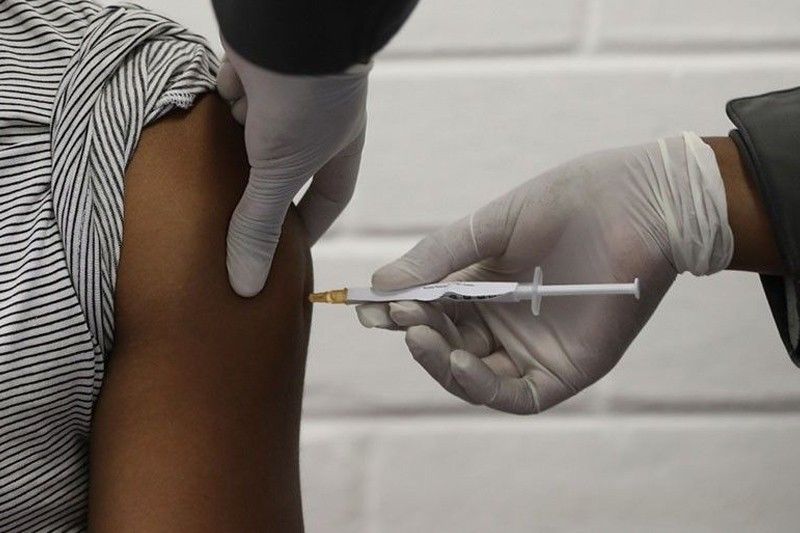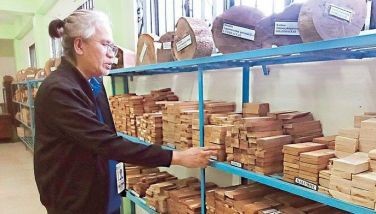High COVID-19 barangays take part in vaccine trials

MANILA, Philippines — Recipients of the COVID vaccines under the global solidarity trials will be selected from the barangays with the highest cases of the coronavirus disease 2019.
This is among the protocols approved by the Philippine government for the vaccine clinical trials.
The approval of the recommendations of the sub-technical working group for vaccine development is contained in Inter-Agency Task Force for the Management of Emerging Infectious Diseases (IATF) Resolution No. 68 issued last Sept. 3.
Under the approved protocols, the World Health Organization (WHO) solidarity trial will be prioritized in the assignment of trial zones. However, independent trials by pharmaceutical firms would not be deprived of trial sites.
Vaccine recipients under the WHO’s solidarity trials will be recruited from the “top five to 10 barangays reporting high COVID-19 (coronavirus disease 2019) cases” based on the attack rates per 1,000 population per barangay.
The data will be provided by the health department’s epidemiology bureau. Regional health development offices will monitor the database of all trial participants. The epidemiology bureau, meanwhile, will manage the database, which will include participants’ details.
“Trial sites will be at the barangay level and randomization will be by households,” the resolution read.
Household census will be obtained from the barangay to identify the residents of the area.
Transient residents will be discouraged from joining the trials unless they can show proof that they will be staying in the trial site for the next two years.
“Independent clinical trials by private vaccine companies will also be assigned trial zones, such that they are equally and rationally distributed to avoid competition in subject recruitment,” the resolution read
For outbreak situations, the WHO solidarity trial vaccine teams can move into affected barangay as long as there is no ongoing independent clinical trial in the area. If there is an existing clinical trial, the WHO team may transfer to the next most adjacent barangay.
To address recruitment shortfalls, the deficit can be addressed by other barangays with faster recruitment to meet the total target sample size.
The interior and science departments may sign memoranda of agreement to authorize the deployment of vaccine clinical trial teams.
“Close coordination with the LGU (local government units) for zoning in barangays will be made. The barangays should be informed to prepare for immunization in case there is an outbreak. There should be a meeting with city health officers to discuss the data needs and considerations for recruitment,” the IATF resolution read.
Due to mobility restrictions, alternative modes of follow-up should be adopted like the tapping of barangay health workers or local barangay volunteers and the use of mobile phones for reminders.
The sub-technical working group has also proposed the creation of a separate sub-technical working group on vaccine procurement.
DBM-led
The procurement group should be led by the budget department and composed of the health, finance, foreign affairs, interior and trade departments, the Philippine International Trading Corp., and the National Economic and Development Authority, according to the sub-technical working group’s proposal.
“DOH (Department of Health) will decide on which vaccine and number of vaccines doses to be procured, as well as the program of vaccine deployment,” the resolution read.
But Filipinos should not pin their hopes on supposed coming launch of new vaccines, according to the DOH.
“Our countrymen must understand the process that we are doing (in finding a vaccine against COVID-19). The process is not easy… So we would like to temper the expectations,” Health Undersecretary Maria Rosario Vergeire told reporters.
She noted that for instance, the conduct of clinical trials alone usually takes at least six months and the government has to negotiate with the manufacturers.
“We are having different discussions with vaccine manufacturers, and also with other governments so that we can better position (and) our country and population would have adequate vaccines needed in time,” she added.
Last week, the government through the DOH, Department of Foreign Affairs and Office of the President met with representatives from United States-based Pfizer to discuss the Philippines’ possible procurement of the company’s vaccines. No commitment was made at the meeting.
“They said they will not do clinical trials here in the Philippines because they are well-advanced with their Phase 3 clinical trial and accordingly, by the end of October their Phase 3 clinical trials will be finished,” she added.
Vergeire said most of their discussions centered around “confidentiality disclosure agreement (CDA)… They asked if we can give an estimate for pre-ordering this vaccine.”
The official added that government agencies will have to discuss the limitations of “pre-ordering without the products yet” as provided by law.
Prioritize poor
Meanwhile, Sen. Bong Go said the government must make sure vaccines for COVID-19 are accessible and affordable to the poor and vulnerable groups as the country participates in testing of various vaccines.
The senator said “availability, affordability and accessibility” of the COVID-19 vaccines must be ensured for those who need these the most, especially the poor and vulnerable sectors, as the government starts to allocate funds and other resources to purchase the same. “We must ensure that no one will be neglected or overlooked,” Go said in Filipino.
As it is projected that only 2.065 billion doses of vaccine can be produced worldwide per year, the DOH recommended the need to strategize the procurement of the vaccines.
In addition to this, the DOST recommended a medium-term plan involving private pharmaceutical companies to invest in a modular facility not only for producing COVID-19 vaccines but also for other vaccines needed and to be used in the country.
Go said the Duterte administration will prioritize the poor and workers in the expected mass inoculation against the disease.
“We are not only aiming to adapt to the ‘new normal’, we’re also hoping to get back to the previous normal—the life when we can go out and embrace our fellow Filipino,” he said in Filipino.
He again reminded the public to strictly follow health and safety protocols being implemented by the government – proper wearing of the right kind of masks, observing physical distancing, practicing proper hygiene, and avoiding non-essential travel as the country awaits the mass production of vaccines.
- Latest
- Trending































